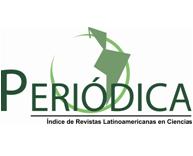INFLUENCE OF ADVANCED OXIDATIVE PROCESSES IN ANAEROBIA DIGESTION OF WASTEWATER IN COFFEE INDUSTRY
Keywords:
wastewater, instant coffee, inhibition, biochemical methane potential, advanced oxidative processesAbstract
The production of soluble coffee generates a large volume of wastewater, whose treatment by anaerobic digestion (AD) is difficult because they have recalcitrant substances in their composition such as polyphenols and tannins. Some studies propose treatments for these effluents, but they do not point to the elimination of these recalcitrant compounds. The application of advanced oxidative processes (POA) can influence the reduction of chemical oxygen demand (COD) and total organic carbon. It can also reduce or eliminate toxic, inhibitory or refractory compounds. The objective of this research is to determine the incidence of homogeneous photocatalysis with H2O2and ultraviolet radiation, as a pretreatment to anaerobic digestion for the reduction of tannins present in synthetic waters of the soluble coffee industry. To evaluate the POA effect, the biochemical potential of methane (BMP) was determined, the inoculum used as a function of volatile suspended solids (SSV) was characterized and its incidence on methane yield. The tests were carried out at mesophilic (35ºC ± 2ºC) and thermophilic (55ºC ± 2ºC) temperatures, with organic loads of 0.2 and 0.35 gDQO/gSSV. It was found that the pretreatment did not affect the COD value of the synthetic water, however a percentage of tannin reduction of 70.53% was reached. When comparing the methane yields and COD reduction obtained in the BMP with and without POA, evaluated with the same organic loads and temperature regime, it was found that there are no significant improvements in the process.




















